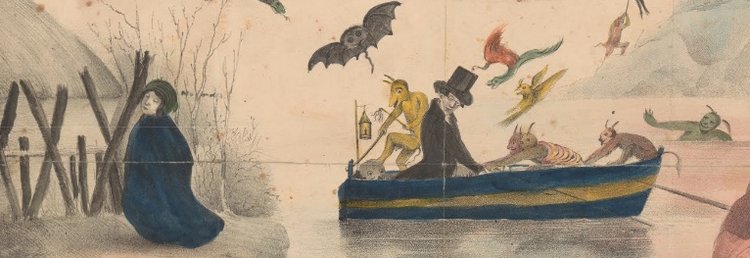Historian Bruce Dorsey Explores Scandalous 19th Century Murder in New Book

What can we learn from a murder that happened in 1832? Professor and Chair of History Bruce Dorsey explores this question in his new book, Murder in A Mill Town: Sex, Faith, and the Crime That Captivated a Nation, based on a class he taught by the same name from 1995 to 2011.
Dorsey will be holding a book talk and signing at Swarthmore Campus & Community Bookstore on Oct. 5 from 5:00 to 6:30pm.
The murder at the heart of the story is that of Sarah Maria Cornell, a factory worker in Fall River, Mass., who was found dead by hanging on the outskirts of town. Cornell was pregnant when her body was discovered. Though some claimed it was suicide, Cornell had confided in her doctor that a preacher named Ephraim Avery coerced her into sex, making him a prime suspect. Avery was one of the first clergy members to be tried for murder in the U.S.
“This is a scandalous case because a married evangelical preacher is accused of impregnating and murdering a woman factory worker and fellow Methodist,” says Dorsey. “The case itself is compelling history, a story that students were eager to return to each week.”
The case touches on a wealth of historical issues such as women entering the industrial workforce, the spread of evangelical religion, the rise of tabloid journalism, and the subsequent difficulties of finding an impartial jury.
The goal of the class was to inspire students to think and act like historians.
“They read the original documents, the trial reports, and many different newspaper accounts,” says Dorsey. “They had to make sense of all the competing biases of sources, and to talk and write about it.”

A graphic political cartoon depicts the Rev. Ephraim Avery as the murderer of Sarah Maria Cornell. Source: A Minister Extraordinary Taking Passage & Bound on a Foreign Mission to the Court of His Satanic Majesty! (New York, 1833). Library of Congress, Prints and Photographs Division.
After 16 years of teaching a course on the murder, Dorsey thought, “It’s time for me to tell this story.”
Despite his knowledge on the topic, the book required still more research. He was able to find letters written by Cornell’s grandfather at Yale University because the murder victim’s grandfather had been a prominent factory owner. Harvard University’s Baker Library provided records of New England textile mills that helped Dorsey better understand Cornell’s life in the factories.
At the time of Avery’s trial, living away from home to work in factories was thought to loosen women’s morals. Perhaps it comes as no surprise then that Avery was acquitted: It was the word of a married preacher against the word of an unmarried pregnant factory worker who was not alive to defend herself.
“[The case] tells us a great deal about why it’s important to listen to and believe women and the accusations that they’re making regarding sexual violence,” says Dorsey. “How do we tell those stories in a way that’s true and empathic and not exploitative?”


